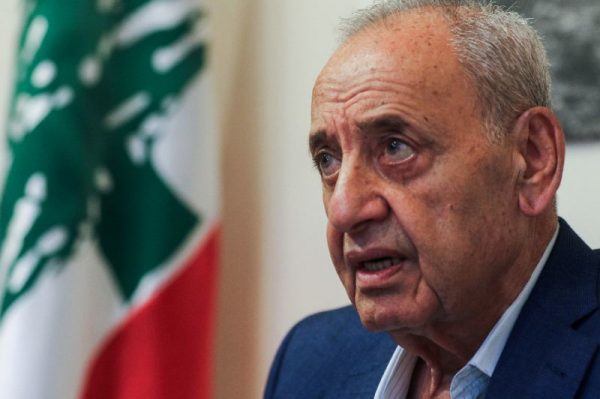
Lebanon Parliament Speaker Nabih Berri reiterated on Wednesday his call for the rise of a “civil state” in the country as a solution for the country’s recurring crises.
“The only solution today and in the future is the rise of a civil state,” Berri told lawmakers during the weekly Ain el-Tineh meeting, reminding them that he had raised this “solution” years ago at a national dialogue conference.
Turning to the issue of the government, Berri hoped it will be formed as soon as possible, noting that the regional developments have proved his viewpoint that the obstacle is “domestic.”
Under the terms of the National Pact of 1920, senior positions in the Lebanese state are strictly apportioned by religion:
- the President of the Republic must be Maronite Christian
- the Prime Minister of the Republic must be Sunni Muslim
- the Speaker of the Parliament must be Shiite Muslim
- the Deputy Speaker of the Parliament and the Deputy Prime Minister must be Greek Orthodox;
- the Army Chief of Staff must be Druze
In a CIVIL STATE. The union of individual men in civil society under a system of laws and a magistracy, or magistracies, charged with the administration of the laws.
Lebanon has several different religions. The country has the most religiously diverse society of all states within the Middle East, comprising 18 recognized religious sects. The main two religions are Islam (Sunnis and Shiites ) with about 60% of followers and Christianity (the Maronite Church, the Greek Orthodox Church, the Melkite Greek Catholic Church, the Protestant Church, the Armenian Apostolic Church) with about 40% of followers. There is also the Druze minority religion, which under the Lebanese political division (Parliament of Lebanon Seat Allocation) the Druze community is designated as one of the five Lebanese Muslim communities (Sunni, Shia, Druze, Alawi, and Ismaili).
Lebanon thus differs from other Middle Eastern countries where the Muslims are overwhelming majority
Leave a Reply
You must be logged in to post a comment.